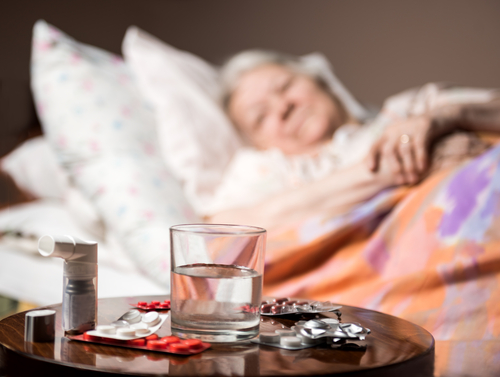Inappropriate Antipsychotic Patient Drugging in Nursing Homes Concealed:
The nursing home industry and the government are masking the frequency with which antipsychotic drugs are used on elderly residents with dementia, a New York Times investigation has found. While antipsychotics are neither indicated nor safe for the treatment of dementia, false diagnoses of schizophrenia and other conditions are resulting in high rates of antipsychotic drug use in patients—rates that go unreported.
The use of drugs by facilities to subdue challenging dementia patients is not a new problem. In 2012 the Centers for Medicare & Medicaid Services (CMS) required that any dispensing of antipsychotics be reported, with the data to be made available on Nursing Home Compare—reports that can affect a home’s star rating, which in turn could have financial consequences. But the requirement came with a loophole: any antipsychotics dispensed following a diagnosis of schizophrenia did not need to be disclosed. In the ensuing nine years since the CMS requirement, schizophrenia diagnoses increased 70 percent.
One in nine nursing home residents is diagnosed with schizophrenia; by contrast the disorder is found in only one in 150 people in the general population. Schizophrenia is almost always diagnosed prior to age 40. It is not a condition brought on by age.
While Medicare’s data shows under 15 percent of nursing home residents using antipsychotics, the Times investigation revealed that the true percentage is about 21 percent, which amounts to 225,000 elderly residents currently on antipsychotics.
Inappropriate Antipsychotic Patient Drugging in Nursing Homes is dangerous for elderly people with dementia—over a dozen clinical trials concluded that the risk of death nearly doubled for older dementia patients using these medications. Antipsychotics like Seroquel, Zyprexa, and Abilify have been discovered to cause the following problems when used by elderly dementia patients:
- Increased Heart Problems-Antipsychotics have been linked to heart problems in people with dementia. Serious or life-threatening conditions that happen as a result of providing inappropriate medication is consistent with nursing home negligence.
- Nursing Home Falls – As antipsychotics cause drowsiness, the use of these drugs often results in higher rates of falls.
- Bedsores and Other Infections-The effects of antipsychotics leave many residents too sedated to move. Lying for prolonged periods in beds or wheelchairs often result in bed sores which, if left unattended, can develop into serious infections.
Despite the dangers, inappropriate antipsychotic drug use in elderly residents with dementia persists in nursing homes. According to the Times article, facilities that are poorly staffed are more likely to provide their residents with antipsychotic medications. These understaffed homes are also more likely to underreport the number of residents taking antipsychotics. It can be concluded that homes with staffing issues use the drugs to control their dementia patients because of the lack of nursing assistants and other qualified staff to take on the challenging tasks of dementia care.
Since the coronavirus pandemic ravaged the country’s nursing homes and left the industry reeling, nursing home employment has plummeted by over 200,000 workers. The use of antipsychotics continues to rise.
Ensuring the Safety of Your Loved One
Pennsylvania and New Jersey nursing homes are at all times required to secure the physical, mental, and psycho/social well-being of their residents by meeting certain health and safety requirements and providing adequate care. To meet these standards, the Philadelphia/PA or NJ nursing home where your loved one lives must be equipped to avoid the kind of substandard care that amounts to nursing home neglect or abuse. This includes ensuring adequate, quality staffing. Should you have concerns about a Pennsylvania or New Jersey nursing home during COVID-19, or if you suspect neglect, abuse, or fraud has occurred at the Pennsylvania, Philadelphia, or New Jersey nursing home where your loved one lives, please contact nursing home abuse attorney Brian P. Murphy to discover your legal rights and options.







